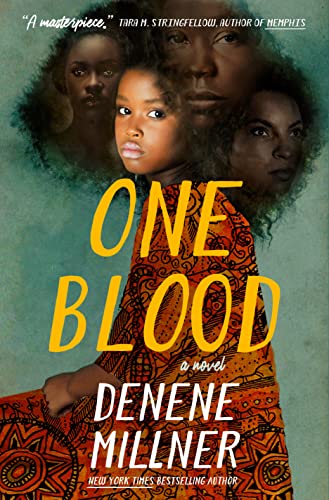One Blood
Lolo and Tommy’s marriage begins with a lie, originating in Lolo’s abusive childhood, the scars of which prevent pregnancy. But it isn’t her lie alone which echoes down the years. Carrying childhood trauma into adulthood, Lolo is obsessively fearful of the vulnerability of girlhood, womanhood, and their dangerous combination with Blackness. She convinces Tommy he is the cause of their infertility. They adopt a son, then a newborn girl, Rae, whose origins are a separate story, a crucial part of the reader understanding what Tommy and Lolo are not privy to. Rae discovers her adoption at twelve but never tells anyone.
One Blood is difficult to summarise without oversimplifying. An intimate meditation on the complexity of family life, it probes the depths of deeply tragic circumstances that give birth to renewal, joy, and heartache. Through Lolo’s struggles with her identity as wife and mother, the novel explores male/female roles, love, loyalty, forgiveness and healing, lies and secrets, and what we pass to our children. Universal themes painted into a compelling portrait and framed with a distinctly Black edge. This is the story’s lifeblood, its vital significance.
Meandering through the ’50s and ’60s and into the early 2000s, One Blood follows the (mostly) happy but complex lives of the Lawrence family into the next generation. As the mother to three adopted children, two of different race and ethnicity to me, I feel the story rings with a poignant authenticity which can only come from life experience. Millner’s author’s note (which I read later) explains her innate ability to understand the deep ties which connect people far beyond blood. Loving someone else’s child as your own; rendered mute by routine health questions; watching your child interact with a family in whom they recognise nothing of themselves – will resonate with many adoptive parents.
A profoundly moving and uniquely Black novel.










